Prof. Dr. Rieke Hansen
Organizational Unit(s):Department of Open Space DevelopmentProfessor for Open Space and Ecological Urban Design
D-65366 Geisenheim
Room 110
Rüdesheimerstraße 5
65366 Geisenheim
Rieke Hansen is Professor for Open Space and Ecological Urban Design at the Institute of Open Space Development at Geisenheim University since November 2019. She studied Landscape and Open Space Planning at Leibniz University of Hannover and completed a technical clerkship in Landscape Stewardship in North Rhine-Westphalia. Between 2010 and 2018 she worked in research and teaching at the Technical University of Munich at the Chair for Strategy and Management of Landscape Development and completed her doctoral thesis there in 2018. In 2018 and 2019, she worked at the Chair of Landscape Architecture at the RWTH Aachen University.
Her research focuses on the innovative potential of concepts such as green infrastructure, ecosystem services and nature-based solutions for sustainable urban development. In this context, she has worked on landscape and open space planning in metropolitan regions and cities in Germany, Europe, and the USA. Her international research projects included the BiodivERsA project URBES, the FP7 project GREEN SURGE, and the Horizon 2020 project proGIreg. Current projects focussing on knowledge transfer include the development of the "Urban Nature Toolbox" for the Federal Agency for Nature Conservation and a guide for the implementation of "Urban Greening Plans" from the EU Biodiversity Strategy 2030 for German cities.
Rieke Hansen is a registered landscape architect with the Hessen Chamber of Architects and Urban Planners and Assessor of Landscape Stewardship. She is a member of the „Wissenschaftlichen Beirat für Natürlichen Klimaschutz“.
Project start: 01.11.2024
Project end: 31.10.2027
Sponsor: European Commission
Project start: 01.04.2022
Project end: 30.11.2024
Sponsor: Federal Agency for Nature Conservation
Urban development funding provides important contributions to sustainable urban development. The current conditions for urban development funding also enable the implementation of biodiversity-promoting measures. In order to make these possibilities better known and applicable, there is a need for stronger technical and conceptual support of municipalities. This includes presenting the municipal scope for action and provision of practical information, but also supportive conditions by the federal and state governments.
To address these challenges, the project "Recommendations for municipalities on the consideration of biodiversity in urban development funding areas" aims to evaluate the integration of measures for biodiversity in urban development funding areas. Based on this, a handbook for municipalities (i.e., for municipal planning offices and nature conservation authorities) will be created on measures for the protection of biodiversity in urban development funding areas. For this purpose, a collaborative process with various stakeholders will be initiated (learning alliance) to ensure that the handbook is practice-oriented and tailored to the needs of municipalities. Finally, recommendations for the federal and state level will be derived and options for the dissemination of the handout will be identified and used.
Project start: 01.11.2020
Project end: 31.01.2024
Sponsor: Federal Agency for Nature Conservation
A wealth of research, guidance documents, and best practice examples have recently emerged on "urban green infrastructure" (UGI). Nevertheless, municipalities are faced with the challenge of utilizing and implementing UGI in view of the complexity of spatial scales, planning phases, and fields of action. To support municipal planning practice, the “Masterplan Stadtnatur” (BMU 2019) envisions the provision of a "toolbox" with recommendations for action. The development of such a web-based toolbox is the goal of the project "Urban green infrastructure concretized – sample solutions and recommendations for action". The focus is on approaches and methods for mapping and evaluating existing UGI elements and ecosystem services. Furthermore, tools and measures for planning, implementation, and maintenance of UGI are provided. The tools cover a broad range of actions including qualification and connectivity, UGI in new constructions, and combined grey-green elements. In addition, advice is given on possible actor constellations, participation methods, and municipal steering and monitoring processes. The theoretical knowledge will be supplemented with the practical experience from four municipalities and regions. They will be involved to discuss the challenges of implementing urban green infrastructure and knowledge needs for the toolbox.
Date: 07.05.2024
Location: online (Deutschland)
Speaker: Hansen, Rieke
Date: 03.05.2024
Location: Geisenheim (Deutschland)
Speaker: Hansen, Rieke
Date: 11.04.2024
Location: Essen (Deutschland)
Speaker: Hansen, Rieke
Date: 15.03.2024
Location: Osnabrück (Deutschland)
Speaker: Hansen, Rieke
Date: 07.03.2024
Location: Leipzig (Deutschland)
Speaker: Hansen, Rieke
Date: 07.11.2023
Location: Berlin (Deutschland)
Speaker: Hansen, Rieke
Date: 20.09.2023
Location: Frankfurt am Main (Deutschland)
Speaker: Hansen, Rieke
Date: 20.09.2023
Location: Frankfurt am Main (Deutschland)
Speaker: Hansen, Rieke
Date: 14.04.2023
Location: Köln (Deutschland)
Speaker: Hansen, Rieke
Date: 16.02.2023
Location: Hamburg (Deutschland)
Speaker: Hansen, Rieke
Date: 29.11.2022
Location: Leipzig (Deutschland)
Speaker: Hansen, Rieke
Date: 10.10.2022
Location: Heraklion (Griechenland)
Speaker: Hansen, Rieke
Date: 03.10.2022
Location: Brüssel (Belgien)
Speaker: Hansen, Rieke
Date: 11.07.2022
Location: Warschau (Polen)
Speaker: Hansen, Rieke
Date: 11.07.2022
Location: Warschau (Polen)
Speaker: Hansen, Rieke
Date: 28.06.2022
Location: Darmstadt (Deutschland)
Speaker: Hansen, Rieke
Date: 30.09.2021
Location: Darmstadt (Deutschland)
Speaker: Hansen, Rieke
Date: 23.09.2021
Location: Dresden (Deutschland)
Speaker: Hansen, Rieke
Date: 07.07.2021
Location: Poznan (Polen)
Speaker: Hansen, Rieke
Date: 22.06.2021
Location: Berlin (Deutschland)
Speaker: Hansen, Rieke
Date: 20.05.2021
Location: München (Deutschland)
Speaker: Hansen, Rieke
Date: 17.02.2020
Location: Dortmund (Deutschland)
Speaker: Hansen, Rieke


